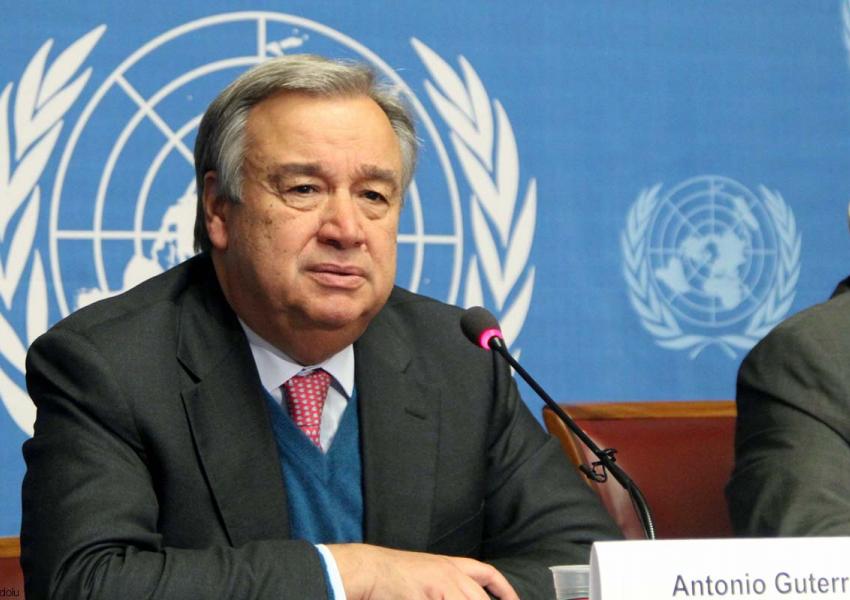
Dissidents’ Letter Calls For UN Referendum In Iran For Secular Democratic Rule
In an open letter to the United Nations Secretary General Antonio Guterres, over 100 dissidents in Iran have urged the UN to sponsor and monitor a referendum for a "peaceful transition of power from Iran’s current religious kleptocratic Government and its Constitution to a secular democratic constitution."
The letter, dated March 23, drew a parallel with apartheid South Africa in the 1990s in suggesting that "the world can come together, especially with the leadership of the permanent members of the Security Council to utilize sanctions to bring an end to the horrible human rights abuses being committed by the Islamic regime in Iran." The UN General Assembly first voted for sanctions against South Africa in 1962 but they were resisted by Western countries for decades.
The latter drew a second parallel, with the Chilean referendum of 1978: "It is an un-disputed fact that a referendum in Chile was held only after accusation of grave human rights violations by the United Nations that forced Augusto Pinochet, the Chile’s absolute leader, to hold such a referendum."
The letter, which has been circulated on social media, is signed by over 100 dissidents, including labor activists as well as former political prisoners and their families. The signatories say they are writing "on behalf of millions of like-minded Iranian people supporting political, civil, religious, women rights and ethnic activists." They demand the resignation of Supreme Leader Ali Khamenei, the overturning of Iran’s current constitution, and a "non-violent transition to a secular Democratic constitution through a free, fair and impartial vote."
In February 2018 Iran's Nobel Peace Laureate Shirin Ebadi and 14 others published an open letter claiming any reforms in Iran were impossible and demanding a UN-supervised referendum for a peaceful transition from the Islamic Republic to a "secular parliamentary democracy." Signatories included human-rights lawyer Nasrin Sotoudeh, reformist politician Abolfazl Ghadiani, political and rights activist Mohammad Nourizad, human rights activist Narges Mohammadi, and internationally renowned filmmakers Mohsen Makhmalbaf and Jafar Panahi.
Iranian officials regularly accuse critics of the Islamic Republic and its constitution of treason. But according to Article 59 of the Iranian Constitution "in extremely important economic, political, social, and cultural matters, the function of the legislature may be exercised through direct recourse to popular vote through a referendum" once the proposal is backed by two-thirds of parliament members.
Iran held two referendums in 1979, one in March when 98.2 percent voted to approve an ‘Islamic republic’ as a form of government replacing the monarchy, and a second in December when 99.5 percent backed the constitution drawn up by an ‘Assembly of Experts’ elected earlier in the year.
Among Iran’s neighbors Afghanistan and Pakistan are Islamic Republics. The Iraqi constitution, confirmed by referendum in 2005, establishes Islam as the "official religion of the State" and a "foundation source of legislation," with no law permitted that "contradicts the established provisions of Islam." Saudi Arabia’s Basic Law of Governance of 1992 reaffirms absolute monarchy while stipulating the king is bound by rules of Islamic law as embodied in Qur’an and Sunna.




